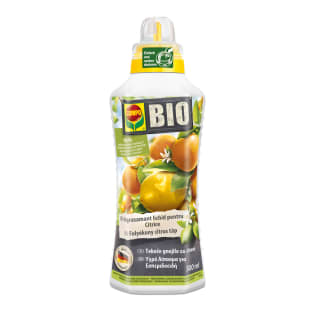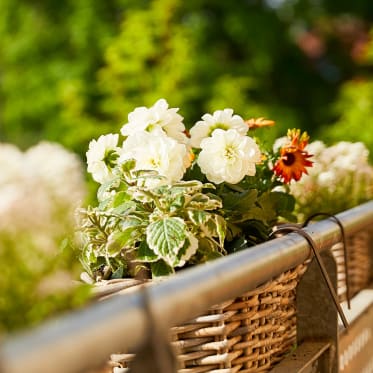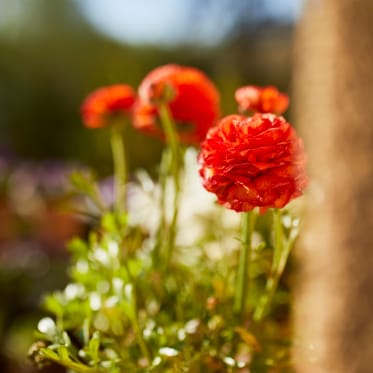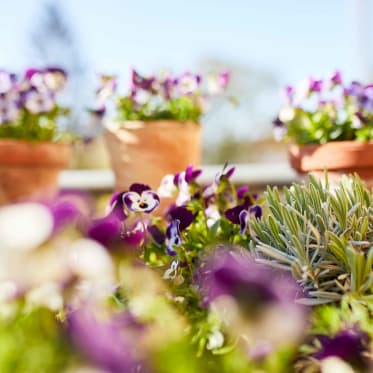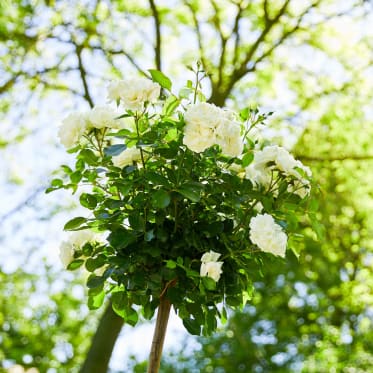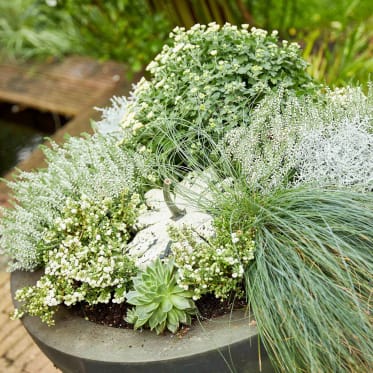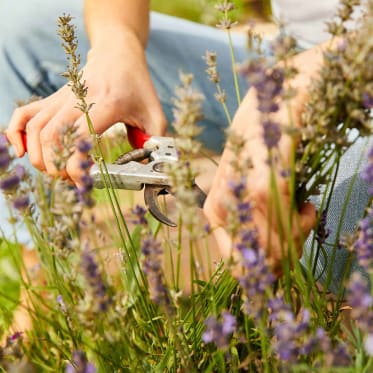Frequent search terms

- COMPO
- Guide
- Plant Care
- Balcony and potted plants
- Tips for overwintering balcony and potted plants
Overwintering of Mediterranean balcony and potted plants
There are a few things you should bear in mind for the upcoming winter to ensure that your balcony and tub plants and their green residents continue to bring you joy next year. The requirements for optimal overwintering are different for each individual plant. Find out the best way to get your tub plants through the winter here.
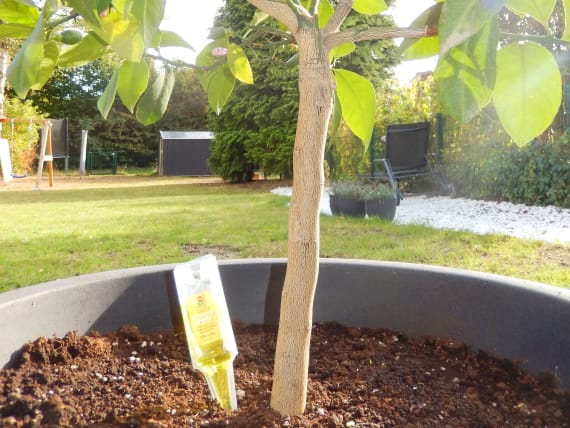
Overwintering according to species
With a few exceptions, all plants in pots with a limited amount of soil need to be protected from subzero temperatures. This is because the root balls of plants in pots and tubs are not as protected as they would be in the soil and can freeze quickly. While exotic plants that favour warmth need to overwinter indoors, garden plants in tubs can remain outside with suitable winter protection. The following applies: The shorter the stay in the often less than ideal winter home, the less the plants are weakened. Our balcony and tub plants come from a wide variety of regions. The specific cold tolerance of plants should be kept in mind and the periods during which they should be kept inside and outside planned according to the species.
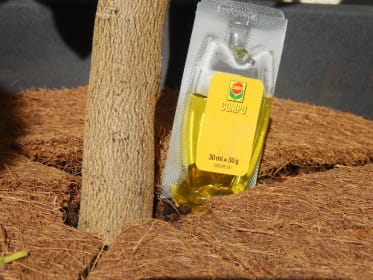
The different requirements of plants for their winter home
Overwintering plants outside
Plants overwintered outside include boxwoods, roses and cherry laurel. Before being furnished with winter protection in late autumn, they need to be cleaned, which means removing any diseased or damaged shoots and leaves. Then wrap non-woven fabric, bubble wrap or other insulating materials around the tub and place on wooden or polystyrene plates. Covering the soil with non-woven fabric to prevent the soil from freezing is also recommended. The parts of the plant above the soil are only protected with spruce twigs or an old blanket when there is a lasting frost. Move plants together by the building wall to protect them from wind and rain.
The following plants can stay outside in mild winters or with winter protection: Bluebeard, hydrangea, lavender, rosemary, rose, skimmia, prickly heather.
Overwintering in bright places
Evergreen plants such as oleanders, olive trees, citrus plants, coniferous trees and some bamboo species require light and temperatures between 5°C and 10°C to overwinter. Unheated, bright cellars, stairways or garages are suitable places. Plants that bloom in winter, such as camellias, also need to be overwintered in places with plenty of light.
Typical conservatory temperatures are between 10 and 15°C. Almost all tub plants do well in this bright, cool and airy environment.
Overwintering in dark places
Plants that shed their leaves and pruned plants can also be overwintered in dark places, provided that temperatures are suitably low (05°C). This applies to angel's trumpets and fuchsia.
You should bear this in mind when overwintering balcony and tub plants
From September onwards, make sure that you don't water it too much so that the root balls of your tub plant don't get too wet. This prevents rot in the overwintering spot.
How long it should remain indoors depends on the plant. The rule of thumb is that herbaceous plants are generally more sensitive than woody plants, and evergreen shrubs don't resist the cold as well as deciduous plants.
Most tub plants should be pruned by about a third before overwintering. Oleanders are an exception to this rule, as they start forming flowers on their shoots in autumn for the following year. Prune diseased leaves and shoots thoroughly and dispose of them in the organic waste. Do not compost.
Before putting plants in their final winter home, they should be thoroughly checked for pests. Do not place the plants too closely together in their winter home. Provide good ventilation, regularly inspect the protégés and remove old foliage.
The following generally applies: The brighter the winter home, the warmer it should be, the darker it is, the cooler it needs to be.
Water plants sparingly in winter but don't allow them to dry out. Plants that overwinter in dark places are hardly watered at all in winter.
You might also be interested in these topics

